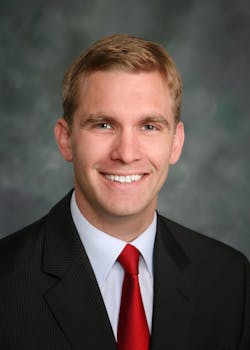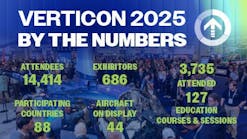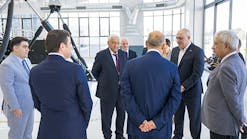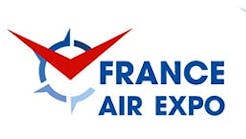We need good people. Despite the short-term abatement of the workforce crisis facing the aviation maintenance community, the pandemic has actually only deepened our long-term challenge in growing technicians, supervisors, managers and executives of the future.
So when we find good people — the future of our industry — we celebrate them. In November, ARSA awarded its 2020 scholarship to C. Owen Ritzman of Southern Utah University. Ritzman is an AMT student whose love of getting his hands dirty is matched only by his excitement at solving complex engineering problems.
The grant is part of Choose Aerospace’s 2020 Aviation Maintenance Scholarship and Award Program. ARSA and its partner organizations combined to sponsor more than $25,000 worth of scholarships, textbooks, training systems and testing fee credits for educators and future aviators.
After he was selected, I reached out to Owen and asked a few questions about his experiences so far and his hopes for the future. I’ll yield the rest of the space to his answers, which illustrated curiosity and commitment to hard work; a story that began in his father’s garage and will hopefully continue in shops or hangars for decades to come.
ARSA: What made you decide to pursue aviation maintenance training?
Ritzman: When I was five or six years old, my dad bought a new truck and invited me to help him put the running boards on. I can’t imagine that I was really any help, but I specifically remember being so proud that I had gotten grease on my hands from helping. I colored black spots on my hands with crayon for a few days so that I could show all of my friends how cool it was!
As I got a little older, I told my parents that I wanted to be a car mechanic. They lovingly suggested that I keep that as a hobby. Through high school, I went through a lot of different degree and career plans. Engineer, national park ranger, wildlife biologist and even helicopter pilot. I quickly discovered that the last one made me sick. But when I was investigating piloting at Southern Utah University, I discovered the newly founded AMT program and that quickly proved to be the answer to my love of mechanical work and my desire to not be limited to an auto shop for my whole life.
ARSA: What experience or experiences did you have before you started at SUU that have been most valuable to you during school?
Ritzman: I would consider two things of most value to me prior to my experience here at SUU. The first is the countless hours I spent in the garage with my dad or on my own, learning the ins and outs of how cars worked. Without that basis of how tools work, how engines work and how to problem solve, I would be lost in aviation.
I would say the critical thinking I was able to learn in high school is of even more value, however. Aircraft require a higher level of precision than anything I ever wrenched on in my driveway. Being able to have the mathematical, reading, writing and communication skills I learned through high school have been invaluable to me in AMT school. Though I wouldn’t have entered this field without my mechanical background, I would never last without the critical thinking ability.
ARSA: What have you found to be most surprising/unexpected about AMT school?
Ritzman: Before I started AMT school, I didn’t realize how fragile aircraft actually are. As I have had the chance to work hands-on, I have discovered just how easily something very important and very expensive can break. I had always imagined aircraft being tough, solid, and hard to break, but mindlessly pushing on the wrong thing can do extensive damage.
Because of this, we spend much more time in classroom instruction than I ever expected. I came prepared for an environment where we would rarely be in lecture but quickly realized that without that time, we would be wasting precious resources once we actually began hands-on work. It was well worth the wait too.
ARSA: Other than becoming an ARSA member, what are your goals for life after school?
Ritzman: Of course, at my age, plans are constantly changing, but my biggest goals after I finish my schooling are to be able to support a family and live somewhere that I can admire every day. One of the most attractive things to me about working with aviation was the amount of versatility it offers. There is work to be had all across the country. Granted, young inexperienced workers often have to take what they can get. But I am confident that as I gain more and more experience, this field will lead me to the exact places that I want to be.
ARSA: To help the industry understand the value of the scholarship, tell us about the expenses you have to cover while at school.
Ritzman: In all honesty, in AMT school, expenses rack up quickly. I was fortunate enough to be offered an academic scholarship from SUU that covers a large part of my standard tuition. However, because of the amazing access we have at SUU to hands-on learning, the fees associated with classes add up to about 160% more than an average student would be paying here.
Another thing that added up very quickly was tools. Despite spending hours working on cars, most of the tools I used were not mine. I would estimate that I have already invested about $1,200 in tools. Some of these are very basic, cheap tools to get me through school, and others are high-end precision tools like torque wrenches.
On top of all of this, there are normal living expenses: gas, groceries, rent, car repairs, dates, recreation, etc. Scholarships like the one offered by ARSA make a huge difference in mitigating these expenses. They make it possible to afford the education while still taking care of everything else. And trust me — the money you pay is well worth the education.
ARSA: If you learned that someone was considering school/career choices and they asked you about aviation maintenance, what would you say?
Ritzman: I would tell them that it’s a pretty fool-proof option. There will always be work in this field, so long as they are willing to do just that — work. But even more enticing, it provides an opportunity to do genuinely important tasks every single day. There are few feelings better than seeing your own effort and knowledge put into action. And what better way for it to be in action than flying through the air?
To learn more about the Choose Aerospace Scholarships and Awards Program, visit www.chooseaerospace.org/awards.html
For more information on ARSA’s broader efforts to support industry career development, visit www.arsa.org/workforce





